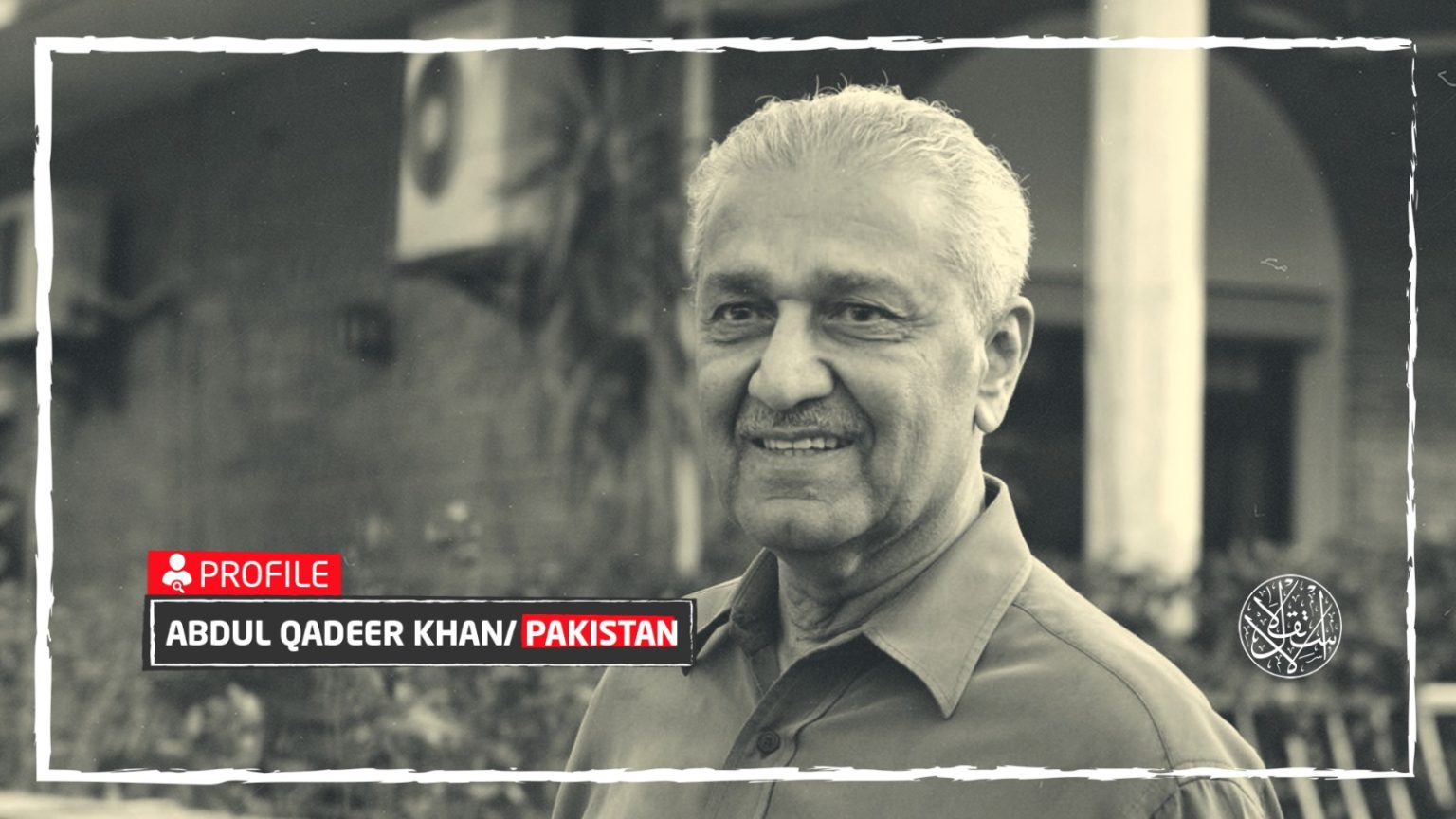Early Life and Education
Abdul Qadeer Khan was born on April 1, 1936, in Bhopal, India. After the partition in 1947, Abdul Qadeer Khan moved to West Pakistan in 1952. He earned a degree in metallurgy from the University of Karachi in 1960 and pursued further studies in Germany, the Netherlands, and Belgium. In 1972, Abdul Qadeer Khan received his doctorate in metallurgical engineering from the Catholic University of Leuven.
Career in Nuclear Technology
In 1972, Khan joined a Dutch firm linked to URENCO, a European consortium developing uranium enrichment technology. Despite limited clearance, he gained access to sensitive centrifuge data, which he translated and studied extensively. In 1974, after India’s nuclear test, Khan offered to help Pakistan develop its own nuclear bomb.
Contributions to Pakistan’s Nuclear Program
Khan returned to Pakistan in 1975 with blueprints and supplier lists for nuclear components. He initially worked with the Pakistan Atomic Energy Commission but later established his own lab—Engineering Research Laboratory (ERL), later renamed Khan Research Laboratory (KRL)—under Prime Minister Zulfikar Ali Bhutto’s direction. Located in Kahuta, this facility developed uranium-enrichment centrifuges and collaborated with foreign suppliers.
International Proliferation Activities
After developing Pakistan’s nuclear capability, Khan began selling nuclear technology abroad in the mid-1980s. He created front companies in countries like Dubai and Malaysia to transfer centrifuges, designs, and expertise to nations such as Iran, North Korea, and Libya. China also provided Pakistan with weapon blueprints and tested a design on its behalf in 1990.
Arrest and Controversy
Khan was arrested on January 31, 2004, for illegally sharing nuclear technology. On February 4, he confessed publicly and took sole responsibility, although experts doubted the military’s non-involvement. President Pervez Musharraf pardoned him the next day but placed him under house arrest until 2009.
Legacy and Impact
Though Western critics dubbed him a nuclear proliferator, many in Pakistan view Khan as a national hero. He symbolized strength and deterrence in the face of regional adversaries, particularly India. Abdul Qadeer Khan died on October 10, 2021, in Islamabad, leaving behind a complex legacy of scientific achievement and geopolitical controversy.
Learn more about National Hero’s of Pakistan
